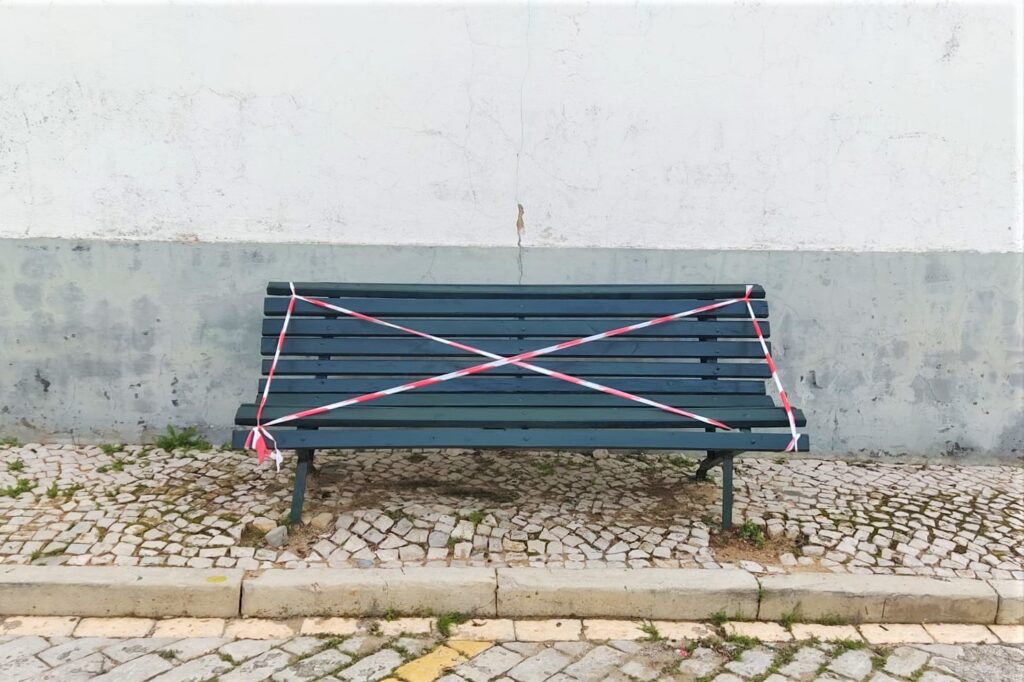Experts predict that Portugal will reach, on March 15, conditions to start the de-confinement, which should be phased. This is one of the conclusions of the meeting that returned, this Monday, to bring together epidemiologists and specialists in public health and policy makers, at Infarmed, in Lisbon. The Government will announce, on Thursday, the measures for deconfinement.
The prediction of Baltazar Nunes, an epidemiologist at the Instituto Doutor Ricardo Jorge, is that, by March 15, Portugal will be «very close to 60 cases per 100 inhabitants» and with an occupancy rate for intensive care units that is «desired ».
According to mathematician Óscar Felgueiras, who also participated in the Infarmed meeting, the level of incidence of Covid-19 must be below 60 cases per 100 inhabitants so that the containment measures can be alleviated.
Óscar Felgueiras, from the North Regional Health Administration and professor at the Faculty of Sciences of the University of Porto, presented, at the meeting, a plan to reduce restrictive measures that proposes the creation of five levels of risk.
The level of “risk 5” (high) would be equivalent to 240 cases per 100.000 inhabitants and the level of “risk 4 (high) of 120 cases/100 inhabitants.
The threshold of “risk 3” (medium) would be 60 cases per 100 thousand inhabitants, of “risk 2” (low) of 30/100 thousand and “risk 1” (very low) was the equivalent of zero cases.
"The goal is to reach a level below 60 cases per 100 inhabitants within 14 days in a situation where there is some stability", he stressed.
Óscar Felgueiras noted that, at the end of October, “a red zone” was entered, where the 14-day incidence rose to a level above 240 cases per 100 inhabitants.
To try to avoid this type of situation, the expert proposed the use of "an additional indicator" which could be the 14-day growth. Growth that is “more stable” and, taking into account the proposed low-incidence levels, ends up “giving more stability to the adoption of measures”.
For the investigator, an acceleration in the number of cases should increase the level of risk, proposing that from 240 cases onwards is the maximum level.
«In the 120 [cases] with 30% growth, there is a jump from level four, to level five and so on, and, at lower levels, the situation may eventually differ in the sense that there is a green line at the levels lower".
What this plan proposes is that there is a possibility for the risk indicator to reduce: «with a negative growth of 30%, a level of risk would be lowered, with a growth above 60% this would imply an increase of two levels of risk, except at the lowest level of incidence, where sometimes there are small disturbances that are not
The viable situation is to be at “risk 2”, which will essentially be a continuously controlled situation in which you are already or in 60 cases per 100 inhabitants in 14 days or approaching, which is “the current situation”.
For her part, Raquel Duarte, a pulmonologist, defended a deconfinement plan based on a risk scale between “very low” and “very high” with some differentiated measures in terms of municipalities and others that should be applied throughout the country.
After listening to the experts, Prime Minister António Costa considered he had "a more solid scientific basis" to make decisions, after the experts had converged on criteria at the Infarmed meeting.
«It is important to find a methodology that could share with the community what is the scientific support of differentiated risks, because this helps everyone to understand the measures adopted and facilitates adherence. I feel I have tools to have a more sustained decision process», he highlighted.
Marta Temido, Minister of Health, at the end of the meeting highlighted that the "declining trend of the pandemic" continues, with the number of daily cases decreasing, as well as the number of hospitalizations.
The RT (Transmission Risk) also reached the minimum value in February but is, according to the official, "again rising", despite being the lowest in the European Union.
Regarding the announcement of the decontamination measures, Marta Temido highlighted that, as usual, the parties will be heard about the data shared at the Infarmed meeting and the Council of Ministers will announce and communicate the decisions for decontamination.
Even so, the government official recalled that there are threats to be taken into account and stressed that none of the experts' presentations pointed to dates, only to contexts.



















Comments